The universe
Explore The universe
Latest about The universe
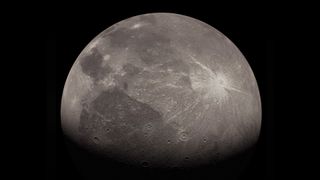
A huge asteroid crash permanently altered Jupiter's biggest moon Ganymede
By Sharmila Kuthunur published
A colossal asteroid slammed into Jupiter's largest moon Ganymede with so much power it dramatically and permanently reoriented the moon roughly 4 billion years ago, new research suggests.
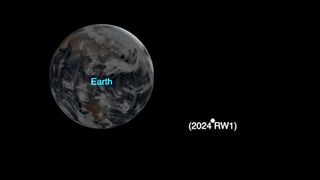
Tiny asteroid burns up harmlessly in Earth's atmosphere over Philippines. 'Discovered this morning,' ESA says
By Brett Tingley published
A 3-foot (1-meter) asteroid burned up harmlessly over the Philippines today (Sept. 4) after being detected just this morning.
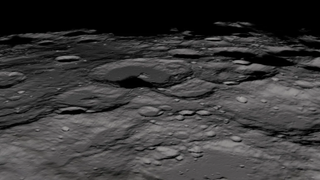
Should we regulate the moon? Scientists call for international plan to share lunar water and resources
By Leonard David published
Any lunar resource evaluation or prospecting campaign will need to be international in nature, as no one space agency will have the money or mandate to conduct it alone.
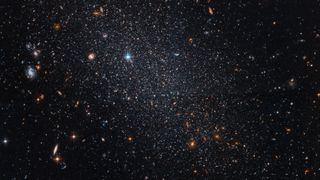
Hubble telescope spies a sparkling 'cosmic fossil' 3 million light-years away (image)
By Samantha Mathewson published
Located about 3 million light-years from Earth, the Tucana Dwarf galaxy sits at the far edge of the Local Group of galaxies and is home to aging stars that may hold clues from the early universe.
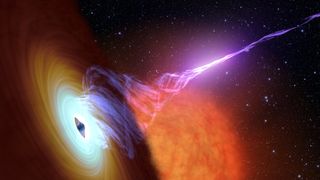
Scientists make lab-grown black hole jets
By Keith Cooper published
By using protons to probe how a magnetic field responds to an expanding plasma, experimenters have replicated the particle jets spewed out by active black holes.
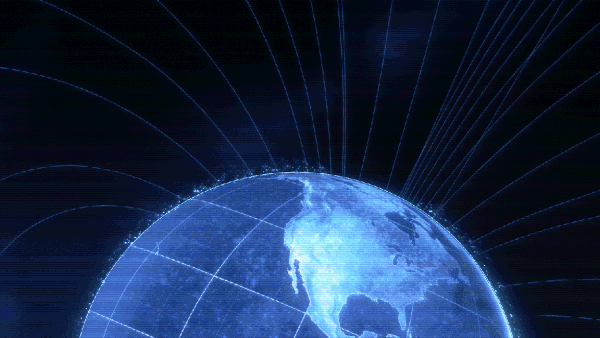
'It basically lifts the skies up.' NASA discovers Earth's electrical field at last after 60-year search
By Sharmila Kuthunur published
A long-sought invisible electrical field wrapped around Earth has been detected more than half a century after it was first predicted to exist.
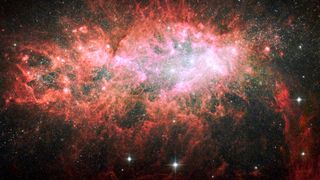
Supercharged 'cocoon of energy' may power the brightest supernovas in the universe
By Paul Sutter published
Every so often, astronomers detect a supernova explosion that's 100 times brighter than it should be. A new paper may reveal the strange source of these "superluminous" supernovas.
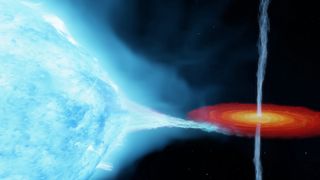
Some black holes have a 'heartbeat' — and astronomers may finally know why
By Paul Sutter published
A tiny fraction of known black holes emit X-ray signals that resemble a human "heartbeat." Now, new research may finally explain the strange phenomenon.
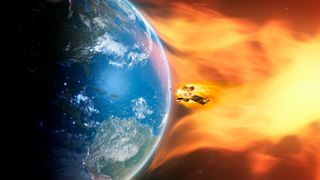
'A lot has changed': NOAA is rewriting the book on how to rank solar storms
By Meredith Garofalo published
NOAA is researching how to update its Space Weather Scales and how it can better communicate its space weather forecasts with the public and government agencies.
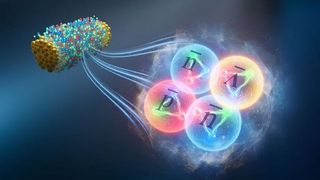
Heaviest antimatter particle ever discovered could hold secrets to our universe's origins
By Ben Turner published
The newly found antiparticle, called antihyperhydrogen-4, could have a potential imbalance with its matter counterpart that may help scientists understand how our universe came to be.
Get the Space.com Newsletter
Breaking space news, the latest updates on rocket launches, skywatching events and more!
